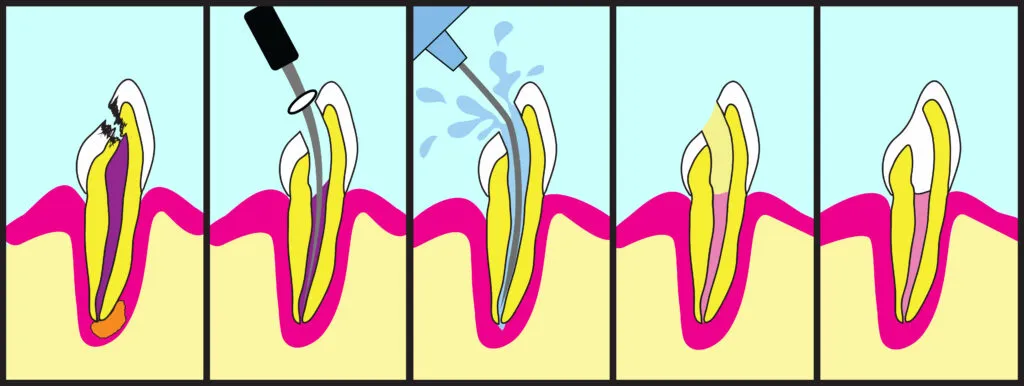Root Canal Treatment Fear
Many people have a deep fear of seeing a dentist and particularly for the root canal treatment. Unlike the common myth, the treatment is not painful. In professional hands, it can save the infected tooth from being extracted and will restore the tooth to normal form and function.
Does The Treatment Always Hurt?
The tooth in need of the treatment can have more pain with a tooth extraction. Though the procedure can have mild to severe pain, the dentist administers anesthesia with proper injection technique and performs a pain-free treatment.
The term “hot tooth” describes hypersensitive teeth with severe spontaneous pain. Intra-ligament Injection is necessary to anesthetize a hot tooth. In a hot tooth, the pulp inside the tooth is under pressure from inflammation of infection. When the dentist prepares a hole in the tooth, the pressure is relieved. Further, he removes the tooth pulp tissue, and there is not much pain associated with the procedure.
The treatment removes the nerve tissue inside the tooth. The tooth will not have any sensitiveness to hot or cold following the procedure. Successfully treated treatment should feel normal.
It is also common to feel sensitiveness on a treated tooth for a day to a week after the treatment. In most cases, the pain is less compared to that before the procedure. Postoperative pain medication is necessary, and the patient should take it as needed.
The Success Rate Of Root Canal Treatment
The treatment has a success rate of 85% – 97% depending on the anatomy of the root canal of the tooth. If the patient decides to extract teeth, the bridge, implant, or denture can replace the missing teeth. The dentist can discuss all the alternatives to conclude the best treatment.
Is A Crown Necessary On A Root Canal Treated tooth?
Root canal treated tooth can deteriorate after the treatment. Tooth following the treatment may fracture, and hence, it is vital to have a crown to protect it.
